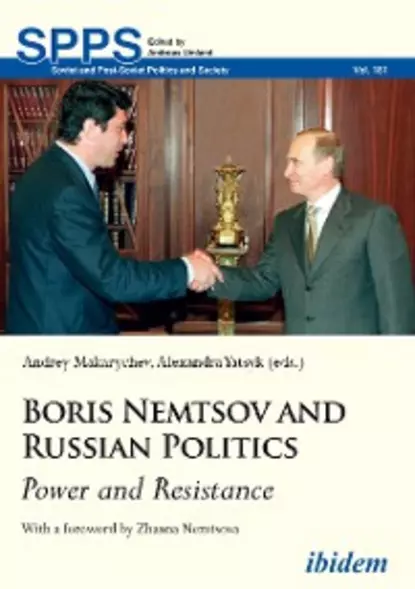Boris Nemtsov and Russian Politics

Поделись книгой!
📒 In post-Soviet Russian politics, Boris Nemtsov is one of the most tragic figures—and not only because he was shot dead, at the age of 56, in close vicinity to the Kremlin, the locus of Russia’s power. The “transparency of evil” in this specific case was shocking: Nemtsov’s murder was filmed by a surveillance camera. The video tape confirms the demonstrative and insolent character of the assassination. His death illuminated a core feature of the current regime that tolerates, if not incites, extra-legal actions against those it considers to be “foes,” “traitors,” or members of “the Fifth Column.”
In this volume Boris Nemtsov is commemorated from different perspectives. In addition to academic papers, it includes personal notes and reflections. The articles represent a range of assessments of Nemtsov’s personality by people for whom he was one of the leading figures in post-Soviet politics and a major protagonist in Russia’s transformation. Some authors had direct experiences of either living in, or travelling to, Nizhny Novgorod when Nemtsov was governor there. The plurality of opinions collected in this volume matches the diversity and multiplicity of Nemtsov’s political legacy.
The volume’s contributors include: David J. Kramer, Senior Director at the McCain Institute for International Leadership in Washington, DC; Miguel Vázquez Liñán, Associate Professor at Seville University; Yulia Kurnyshova, Research Fellow at the National Institute for Strategic Studies in Kyiv; Ekaterina Smagly, Director of the Kennan Institute in Kyiv; Henry E. Hale, Professor at The George Washington University in Washington, DC; Howard J. Wiarda (2015), Professor at the University of Georgia; Sharon Werning Rivera, Associate Professor at Hamilton College; Tomila Lankina, Associate Professor at the London School of Economics and Political Science; Andre Mommen (2017), Professor at the University of Amsterdam; Stefan Meister, Director at the German Council on Foreign Relations in Berlin; Vladimir Gel’man, Professor at the University of Helsinki; Vladimir V. Kara-Murza, coordinator of the Open Russia movement and deputy leader of the People’s Freedom Party of Russia.
In this volume Boris Nemtsov is commemorated from different perspectives. In addition to academic papers, it includes personal notes and reflections. The articles represent a range of assessments of Nemtsov’s personality by people for whom he was one of the leading figures in post-Soviet politics and a major protagonist in Russia’s transformation. Some authors had direct experiences of either living in, or travelling to, Nizhny Novgorod when Nemtsov was governor there. The plurality of opinions collected in this volume matches the diversity and multiplicity of Nemtsov’s political legacy.
The volume’s contributors include: David J. Kramer, Senior Director at the McCain Institute for International Leadership in Washington, DC; Miguel Vázquez Liñán, Associate Professor at Seville University; Yulia Kurnyshova, Research Fellow at the National Institute for Strategic Studies in Kyiv; Ekaterina Smagly, Director of the Kennan Institute in Kyiv; Henry E. Hale, Professor at The George Washington University in Washington, DC; Howard J. Wiarda (2015), Professor at the University of Georgia; Sharon Werning Rivera, Associate Professor at Hamilton College; Tomila Lankina, Associate Professor at the London School of Economics and Political Science; Andre Mommen (2017), Professor at the University of Amsterdam; Stefan Meister, Director at the German Council on Foreign Relations in Berlin; Vladimir Gel’man, Professor at the University of Helsinki; Vladimir V. Kara-Murza, coordinator of the Open Russia movement and deputy leader of the People’s Freedom Party of Russia.
Мнения